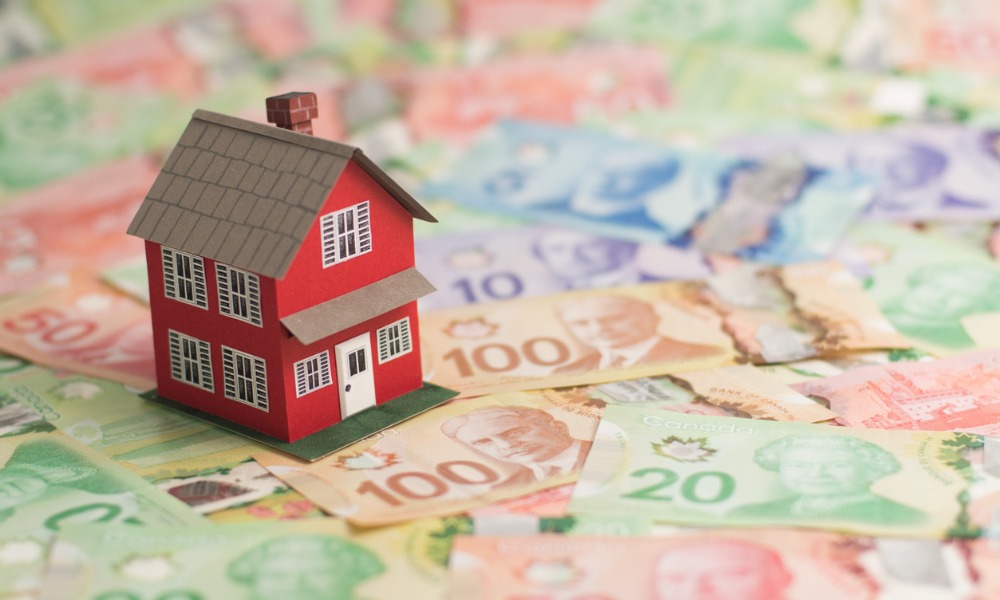Real estate prices in Toronto are climbing nonstop. In this article, we will explain why this happens and the factors that are keeping the prices high

It is not new for real estate prices in Toronto to rise each year. Prices of properties, particularly semi-detached houses, have spiked drastically. Even condominium prices have climbed and even doubled in some areas compared to years prior.
Since this is not surprising for those who are working in the real estate industry and the mortgage sector, the better question is: what’s driving them up?
In this article, Canadian Mortgage Professional will dive into the factors that cause real estate prices in Toronto to keep soaring. We will also deal with the average selling price in Toronto’s property market and discuss whether it is a good time to buy a house in this city.
Why are real estate prices in Toronto so high?
A recent report from the Mercer Canada’s cost of living survey ranked Toronto as the most expensive city in the country. It is closely followed by other Canadian cities like:
- Vancouver - though pricey, the city still offers plenty of prospects for buyers
- Montreal, where renters are facing a housing crisis
- Ottawa, where affordability was a challenge in 2023
- Calgary, which is in the midst of a housing boom
In these locations, house prices are considered severely unaffordable by those who make ends meet. For instance, the average home price in Metro Vancouver is approximately $1.3 million. This has climbed up by 2.9% per year and 3.5% per month.
Toronto Star reported that Toronto is now more expensive than New York in terms of real estate prices. The study compared housing affordability in 40 cities: 12 are in Canada and 28 are in the US.
Not only that, but the median household income is lower in Toronto than in the Big Apple. This was due to factors like increasing mortgage interest rates and low supply of properties.
Here are other factors that are driving up house prices in Canada’s most populous city:
- land transfer tax and development charges
- fluctuating mortgage interest rates
- limited supply of properties
- increasing population growth
- real estate investor activity
- Influx of immigrants and foreign buyers
Let us discuss these factors to get a better understanding on why they cause real estate prices in Toronto to remain high:
1. Land transfer tax and development charges
Land transfer taxes and fees tagged as among the most onerous consumer-side burdens, represent an additional $55,000 to every detached home sold in Toronto. One reason for Toronto’s high land transfer tax and development charges is that provincial legislation restricts how Toronto can generate cash flow.
To top it off, land transfer taxes in Toronto are also increasing. To know more about this and how it can affect interested parties, watch this video (bonus: you get to learn about Ontario as well):
2. Fluctuating mortgage interest rates
Mortgage interest rates in Toronto have been going up and down in the past years. Nowadays, property buyers can expect a 4.64% interest rate for a 5-year fixed mortgage in the city. The best high-ratio, the 5-year variable mortgage, has an interest rate of 5.7%.
Toronto’s interest rates were declining in the aftermath of the pandemic. These record-low interest rates make mortgages more attractive, propelling buyers into the market during that year. As such, it had also increased competition in an uncertain time when buyers would normally be inclined to delay making large financial investments, such as real estate purchases.
Historically low mortgage interest rates in recent years have made borrowing more affordable for homebuyers. This allows them to take on larger mortgages and bid up home prices, particularly for more expensive properties. The easy availability of low-cost credit has fueled rising housing demand and speculation, contributing to price escalation in the Toronto market.
But when the interest rates start climbing fast, Canadians were drowning in debt and had no choice but to sell their homes. This increases the supply in real estate properties and buyers started flocking to the market again. Currently, mortgage rates are expected to slip as the year progresses. Real estate prices will continue to go in the opposite direction.
3. Limited supply of properties
The dilemma of not having enough homes available to buy in Toronto is an issue that has been around for a long time. For years, eligible real estate buyers have been unable to purchase a home because of the limited choices for properties.
As the demand to buy homes increases, the supply of properties is unable to keep up. According to a report from the Toronto Regional Real Estate Board (TRREB), an increase of only 12.3% year-over-year was added to new listings of homes for sale. However, they recorded a decline of 16.4% in sales.
Still, there is hope. The Federal Government of Canada has allocated a housing accelerator fund of more than $400 million toward building residential properties in Toronto in the next three years. Watch this video to learn more about the Canadian authorities’ solution to combat Toronto’s housing crisis:
To help home buyers in Toronto explore their options, visit our Best in Mortgage section for the best mortgage products in Canada.
4. Increasing population growth
The booming population in Toronto is also another factor that drives up real estate prices. A yearly growth rate of 0.46% was recorded by the World Population Review. As for the total population, reports said that there were more than 6.4 million residents in the Greater Toronto Area (GTA).
The correlation between population growth and real estate prices is simple: their movements mimic one another. As the population grows larger, the demand for more housing options also increases. House prices climb as well. The more people there are in a location, the greater the need becomes for additional homes and apartments to accommodate everyone.
5. Real estate investor activity
Since Toronto’s standard of living is costly, real estate investors, especially those who are into the rental market, become interested. As rental fees surge, it becomes an attractive venture for investors looking for addition to their portfolios.
Toronto is also seen as a thriving and wealthy city not just in Canada but around the world. As such, foreign investors would want to put their money in locations that have not just stable but growing economies. In turn, real estate prices in Toronto stay high as investors join the property market.
For investors who are interested in the city’s property market, watch this clip on how to lower risk and improve returns in Toronto real estate investing:
6. Influx of immigrants and foreign buyers
Canada has long been a popular choice for immigrants. For instance, Americans can easily move to Canada since it is a neighboring country to the US. Other foreign principals see Canada as a good destination to start anew or retire.
Moving to Canada seems like the best choice for foreigners
In 2022, after the US Supreme Court dismissed the 1973 landmark case of Roe v. Wade, residents from the US did the obvious: google. And what did they search for? The keywords “how to move to Canada” spiked 850% percent in just an hour, according to this report. The search term “how to become a Canadian citizen” was also up by 550%.
Even those from the United Kingdom are known to choose Canada as a country where they can migrate to. In 2016 after Brexit, the keywords “how to move to Canada” surged in Google as searched by UK citizens.
How is this relevant to real estate prices in Toronto?
As immigrants continue to pour in by the numbers, they would eventually enter the real estate market as they look for places to reside in. Toronto, known as an affluent city, will likely be a top choice.
When immigrants-turned-residents climb the property ladder, the demand for houses will increase and so will the prices.
To combat this, Canada has already implemented a foreign buyer ban back in 2023. This is to prioritize Canadians who are eligible property buyers and minimize the competition.
Average selling price in Toronto’s real estate market
Home prices in the GTA have continued to soar. Currently, the average selling price is almost $1.2 million, according to the latest figures from the TRREB.
The TRREB also noticed a slight slowdown in price growth, with home prices remaining relatively flat. The TRREB even recorded a minimal decrease in real estate prices compared to figures over the past year.

On the brighter side, the government continues to implement new ways to help citizens in buying a home. This can be in the form of first-time home buyer programs. Examples are:
- first-time home buyers’ tax credit
- first-time home buyer incentive
- land transfer tax rebate
- home buyers’ plan
Is it a good time to buy a house in Toronto now?
As real estate prices in Toronto continue to rise, buying a house in Toronto might be a gamble right now. However, varying opinions are made by mortgage professionals and those in the real estate industry. Some think that it is best to purchase a property now because the prices might be higher in the upcoming years. Others argue that it would be wise to wait until prices dip a little bit more.
In the end, the choice is up to the home buyer. Whether to buy a house in Toronto now or in the future depends on personal preferences, financial capacity, and goals.
Do you think that real estate prices in Toronto will continue to climb? Share your insights in the comments section below.



